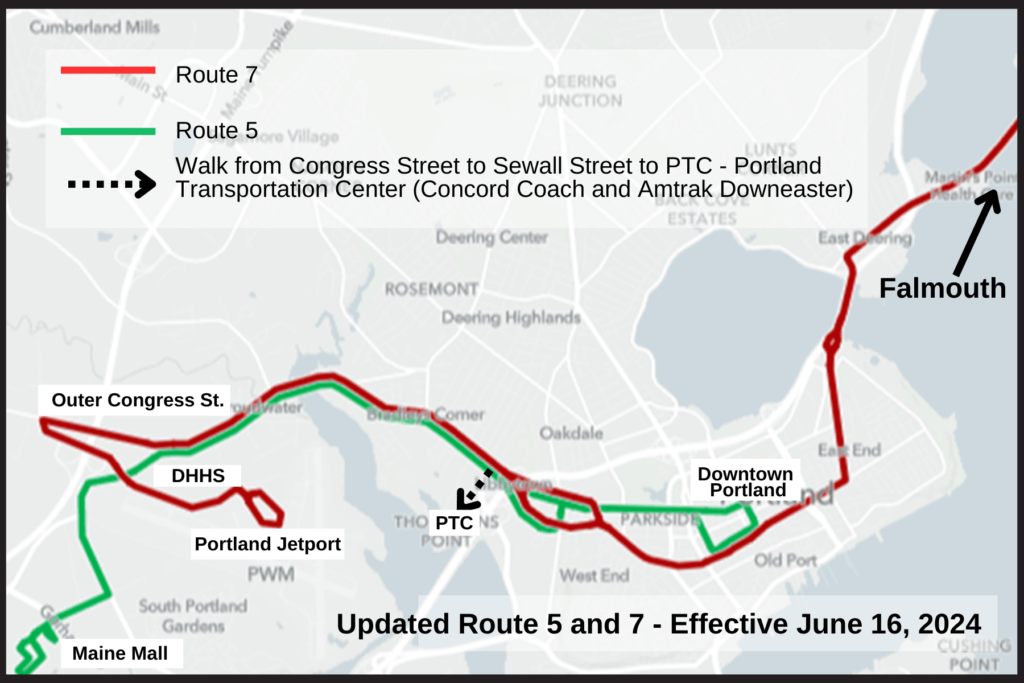ARPA
ARPA Service Improvements and Fare Promotion
The Pandemic And Its Effect On Metro
The COVID-19 pandemic had sudden and drastic impacts to the day-to-day lives of most everyone, including those in Greater Portland. People who had commuted to 9-5 office jobs for decades were suddenly working remotely, restaurants became take-out joints, and people avoided enclosed spaces with other people. Needless to say, this had a jarring effect on Metro ridership and transit ridership across the country. Ridership on Metro plummeted to less than a quarter of 2019’s monthly totals, eventually settling in at about 40% of 2019 ridership by the end of 2020. Ridership recovery has been steady but slow — as of December 2023, monthly ridership is at about 81% of 2019 ridership. Nationally, ridership recovery stands at about 77%, so Metro is outpacing the national trend.
Temporary Fare Reduction And Schedule Improvements
In Winter/Spring 2022, Metro applied for federal American Rescue Plan Act (ARPA) funding for a series of initiatives and service improvements intended to encourage people to take transit after ridership dropped sharply due to the COVID-19 pandemic. In December 2022, the split letter approving the allocation of this funding was signed by all parties, allowing this funding to be allocated for use beginning in 2023. Metro’s initiatives, that were funded by federal American Rescue Plan Act (APRA) to support agencies in the aftermath of the pandemic, were designed to make transit more accessible, more frequent, and faster. Each project, with an approximate timeline for implementation, is discussed below.

